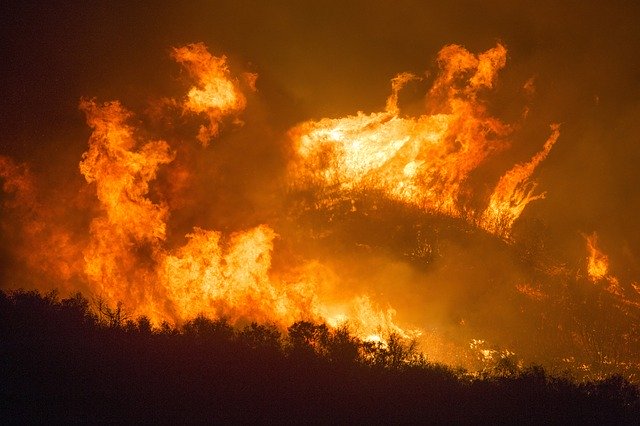Several authorities and agencies are coming together to ensure Cape Town remains safe as the 2019/20 wildfire season kicks off. SANParks’ Table Mountain National Park (TMNP), Western Cape Disaster Management, the South African National Defense Force (SANDF), Working on Fire (WoW), the Cape Peninsula Fire Protection Association and the US 109th Air Wing Guard will team up in preparation.
Experts are predicting that Cape Town will experience its worst fire season yet as a result of the climate crisis and rising temperatures. Newlands, Hout Bay and Constantia are said to be the areas most at risk.
Many areas in Cape Town are naturally dry and bountiful with fynbos. As climate change worsens, the environment gets drier and puts these natural areas at greater risk of forest fires.
Speaking to Cape Town Etc, community-focused environmental NPO Parkscape explained that climate change is the biggest factor in the increase in fire risks. “Climate crisis is probably the most significant driver of the risk – longer and hotter summers, drier winters, and prolonged periods of drought,” said Nicky Schmidt, Parkscape chairperson. “We also see a greater focus on fynbos conservation, and particularly in Table Mountain National Park. As critical as it is to conserve our fynbos biome, we need to remember that fynbos is fire-dependent and needs fire for regeneration. Ideally it needs to burn every 10 to 15 years. However, if it doesn’t burn and if fuel loads aren’t properly managed, the fire risk increases. Fuel reduction burns – controlled burns and stack burns – must become intrinsic to the management of our natural areas particularly where these areas border the urban interface.”
Earlier this week, the teams worked together to highlight the interaction between the ground and aerial firefighting teams. They determined that dealing with a wildfire is crucial, especially in the moments just after it breaks out.
Speaking to IOL, the general consul general of the US Consulate Virginia Blaser, said they were grateful for the US military and New York National Guard who volunteered to be part of the programme.
According to Blaser, they have volunteered to not only share their skills, but also their best practices to help the South African firefighters.
“Whether they are New Yorkers or Capetonians, these are the people who fight our fires, keep us safe and protect our lives, in South Africa, the US and beyond. This is the group that symbolises us working together, bravely and heroically,” Blaser said.
According to TMNP Fire Manager Philip Prins, the realities of climate change are becoming more and more apparent. “TMNP is surrounded by vulnerable developments and wildfires will undoubtedly present a risk to homes in, or next to, such areas,” Prins said.
Picture: Pixabay

